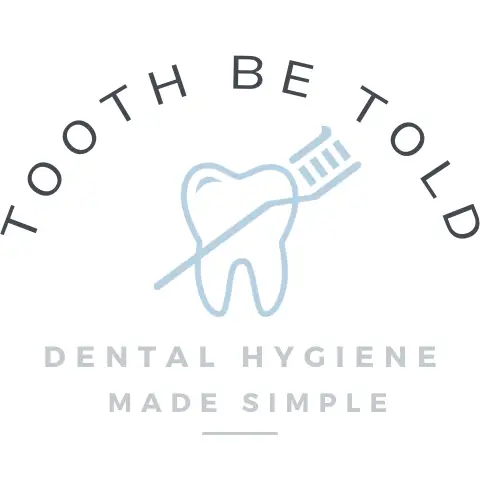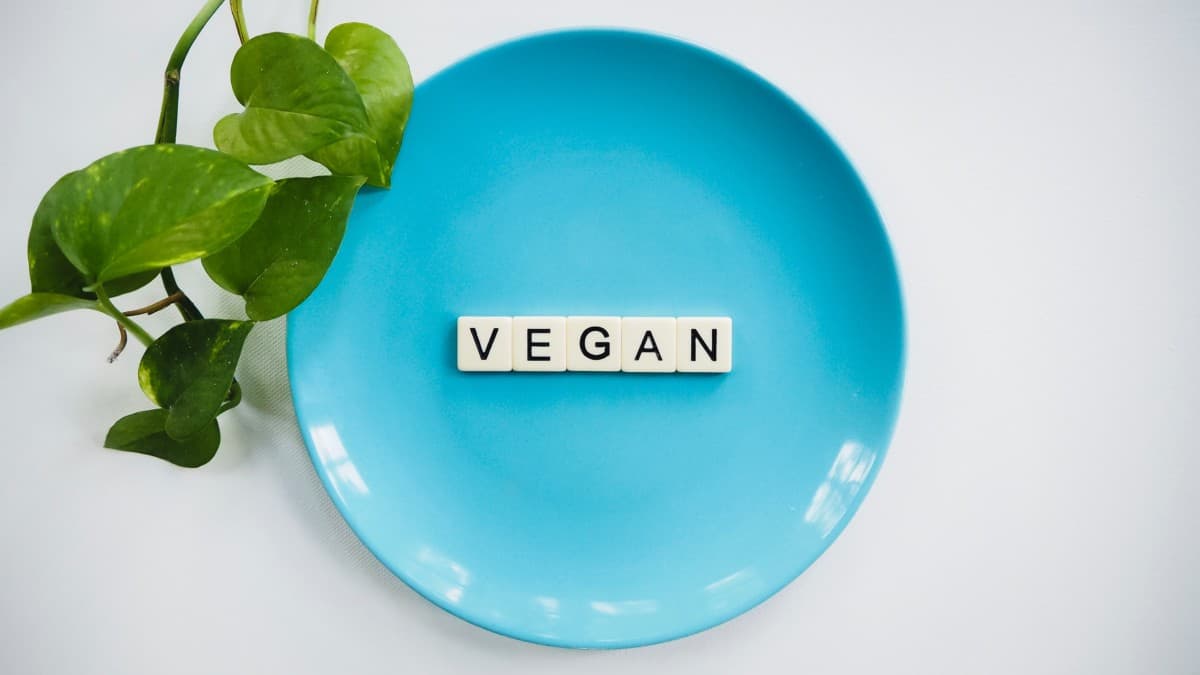
Yes or no? That is the question. With vegan diets becoming ever more popular, I get this question a lot in my dental chair. Everything we put into our bodies has an effect not only on our whole bodies but our mouths as well!
Vegan diets in relation to oral health rely on the amount of sugar consumption and vitamin/mineral deficiencies which can have a negative impact on oral health. These issues are more prevalent in vegan diets and lifestyles.
Both natural and refined sugars have a huge impact on oral health, increasing cavity formation and erosion of teeth. And vitamin/mineral deficiencies can decrease the healing of the tissues in the mouth and body.
What is vegan?
Veganism is both a diet and a lifestyle that some people strictly adhere to. People who adhere to this lifestyle do not use products or consume any food/drink that is made from animals or animal byproducts.
Sometimes vegan can be confused with vegetarianism. Vegetarian lifestyle only includes staying away from eating animal products, but they may still use things that have been made out of animal products or by-products such as cheese, eggs, and clothing made out of wool.
With more people choosing to join the vegan lifestyle as the food and clothing industry gets exposed, it has mostly positive but some negative effects on our bodies. And with our mouths being the gateway to the rest of our bodies, it’s important to know how it specifically affects our oral health.
The vegan umbrella; trendy food habits
Under the umbrella of vegan, there are some vegans that follow very strict guidelines and also others who will eat anything that claims to be vegan.
What I mean by the “vegan umbrella” is that vegan can be looked at as a vague explanation.
Some vegans eat really processed grab and go foods, and others take a more whole-foods approach.
Unhealthy choices
Most of the processed grab and go foods are still not healthy and are full of fillers and sugar. Non-dairy Ice-Cream, vegan cookies and packaged snacks are among those trendy food items and making the words “vegan-friendly” prominent on packaging.
There are some very smart marketers out there who take advantage of the health claims of the vegan lifestyle. And people fall for it, and they are under the impression that if it has the word vegan on it that it must be healthy or will make them a healthier person.
Again, because our lives are so busy, we often don’t take care to read labels to see what ingredients are in these items.
Healthy choices may not be healthy for your mouth
Vegans usually eat more fruits and vegetables than people who are not vegans, and also a lot of dried fruit and berries which are sticky sugars that get really stuck in the grooves of the teeth, increasing the chance of forming a cavity.
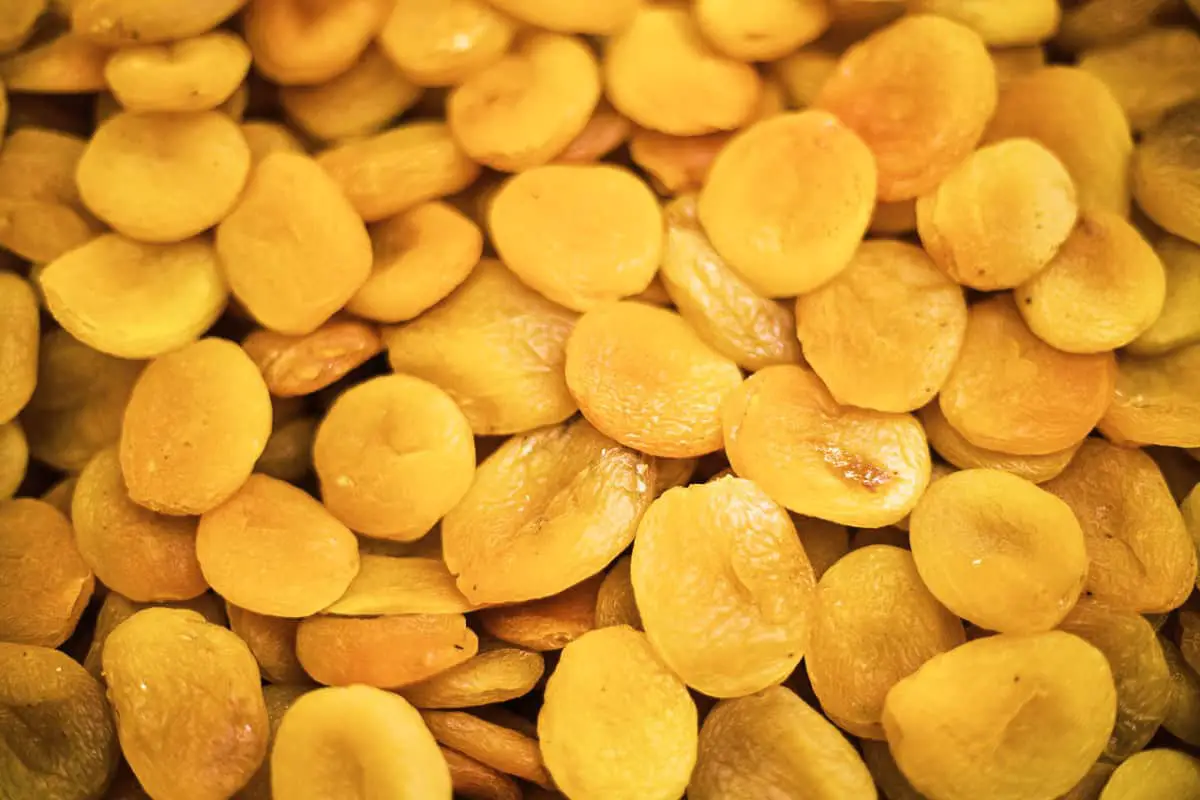
Another snack food that is not the healthiest for oral health is popcorn.
You wouldn’t imagine how many popcorn pericarps (the outer layer of the popcorn kernel) I find under people’s gums, and I ask them when the last time they ate popcorn was and sometimes its days or a week or two prior.
The popcorn pericarp doesn’t get broken down in the mouth and is the perfect size to get pushed under the gums and suction to the side of the tooth. But your body still sees it as an invader and will try and get rid of it.

This triggers the inflammatory response of the body and a localized infection ensues. This can cause bleeding, and tissue loss if left for an extended amount of time.
Why is sugar such a big culprit of poor oral health?
Sugar feeds bacteria and bacteria produce acid. It doesn’t matter where the sugar comes from. It could come from an apple or a chocolate bar, but the bacteria in your mouth still see the sugar as food regardless of where it came from.
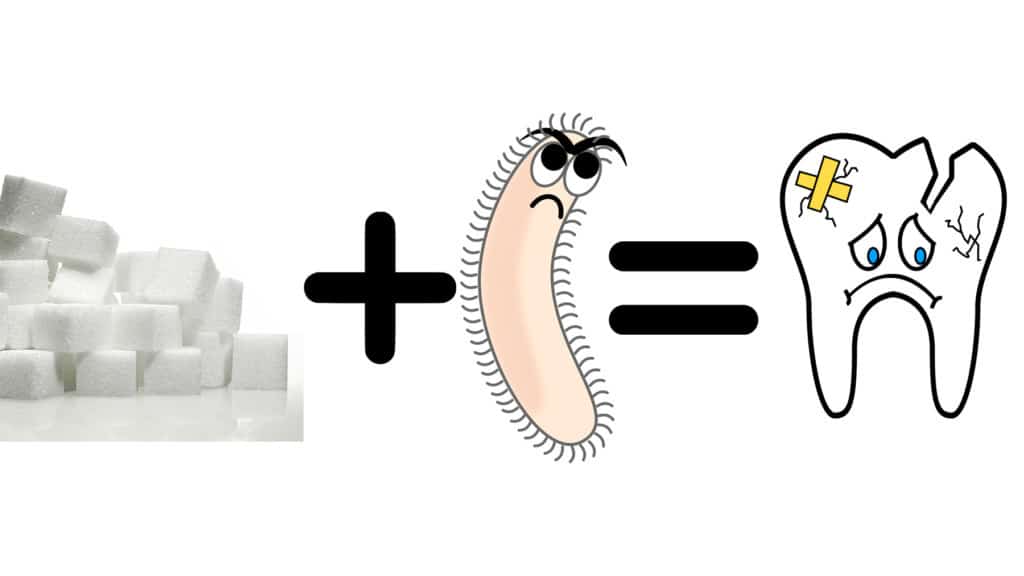
So more sugar=more acid in the mouth that starts to break down the tooth’s structure forming a cavity.
A vegan cookie is still a cookie.
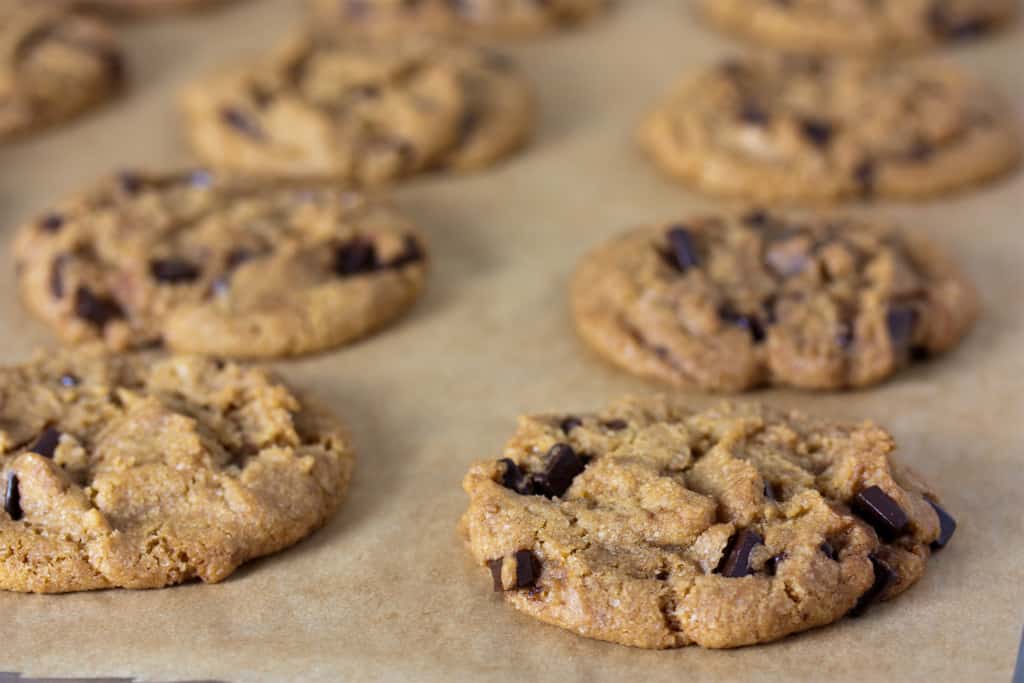
Our society is always in a rush, with quick to-go snacks. And again like I mentioned earlier, we often don’t read the labels to look at the ingredients.
With more people going plant-based and taking on vegan diets, this topic is becoming increasingly more important to talk about.
But it’s not only sugar that can wreak havoc on our teeth. Acidic food and drink have the same negative effect on the teeth.
Acidic food and drink
Not only is sugar the big bad wolf, but acidic food and drink are right up there as well.
The pH level of our mouths should be neutral 6.7-7.3 and this is controlled by our saliva. The most important role of saliva is to bring the mouth back to the neutral pH level after we eat and drink.
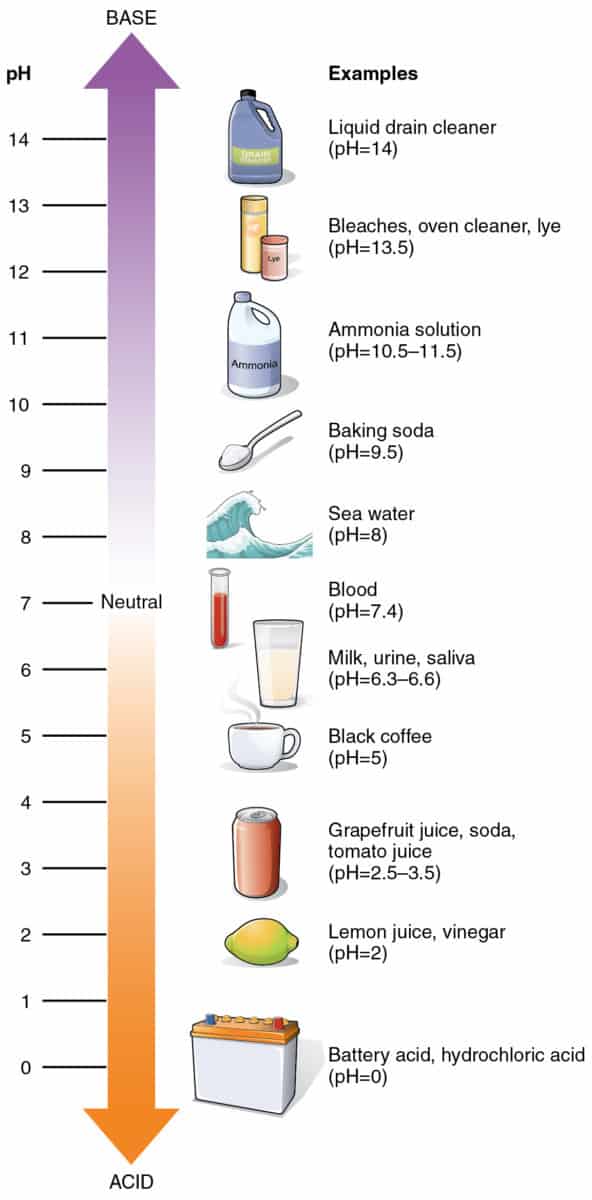
A cavity can only start to form when the pH level of our mouths fall lower than 5.5. And when it does fall below this number, our dental jargon calls it an acid attack. You can see in the image above that even black coffee has a pH level of 5, meaning that it can start to break down our tooth surface.
Also, acid erosion can happen over a long period of time. The teeth will lose a more even layer of tooth surface that can be seen in the picture below. You can see where the white enamel has thinned to expose the yellow dentin layer underneath.
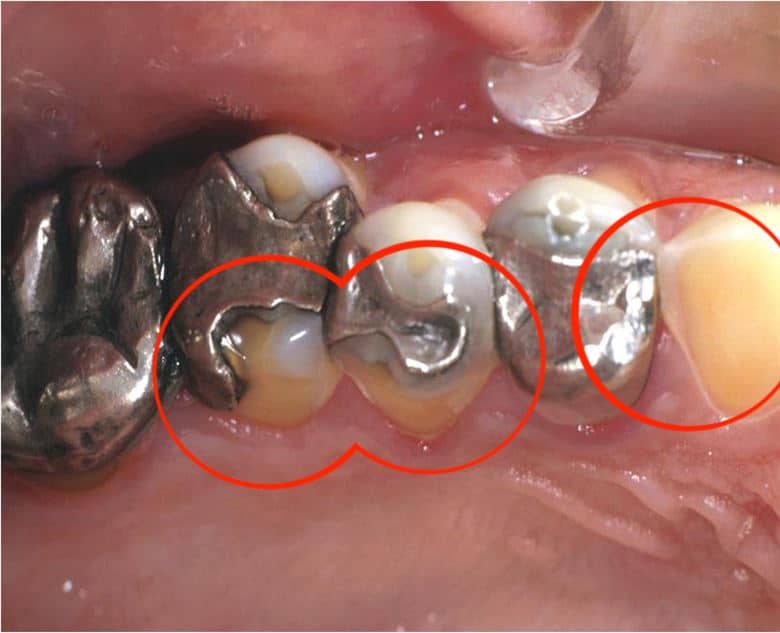
It takes about 30 minutes for saliva to bring the pH level back to neutral in your mouth to stop cavity formation, so if you are eating and drinking more frequently, your mouth is in an acidic state for much longer.
Do not brush your teeth right after having sugar or acidic food and drink as the teeth will be softer and you will brush away the tooth’s surface.
Rather rinse with water after to rinse away the sugar and acid, and wait 30 minutes for your saliva to work it’s magic; neutralizing the acid.
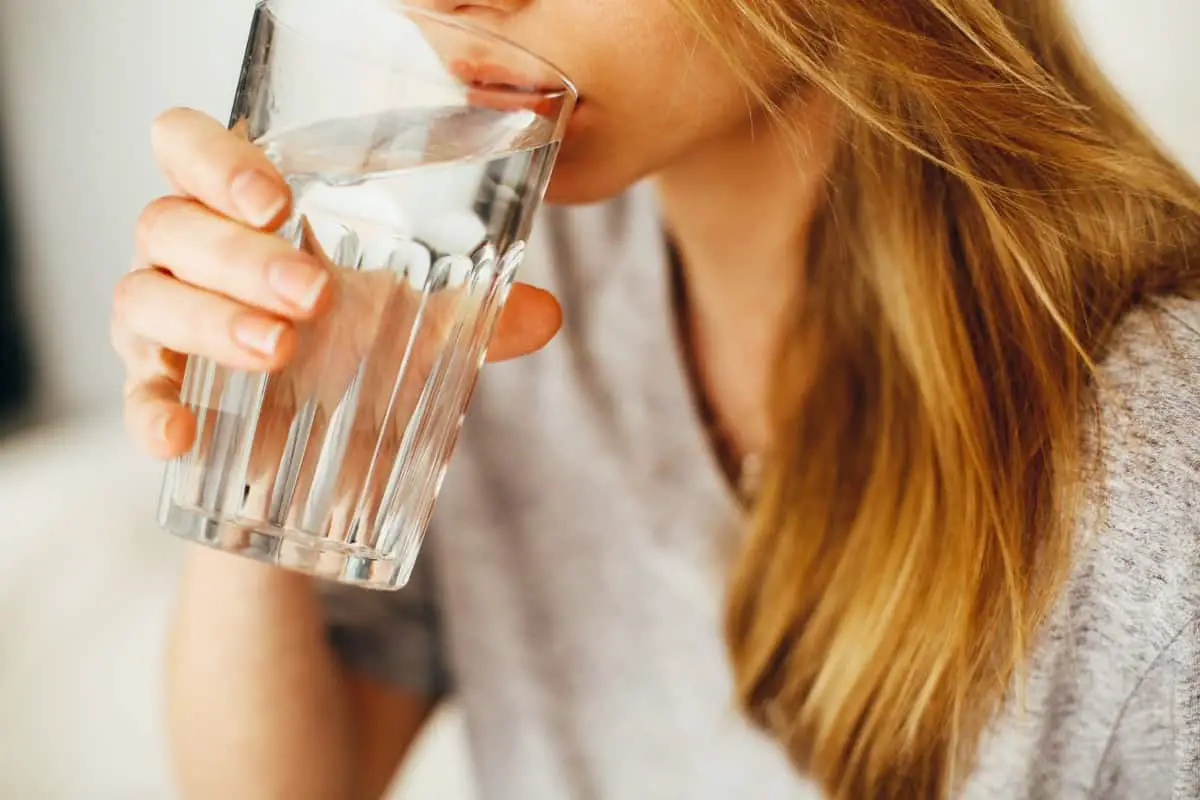
The questions we ask patients at the beginning of the dental appointment about their medications and overall health is to determine if your overall body health could be affecting your oral health.
We look at medications and medical conditions because over 500 medications cause dry mouth which has a direct effect on oral health. There are many medical conditions that can have a negative effect on your oral health and vice versa.
Even some vitamin and mineral supplements can have an impact and even improve your oral health.
Common vitamin and mineral deficiencies of vegans
Certain vitamin and mineral deficiencies are more common in a vegan and vegetarian lifestyle.
The most common dietary deficiencies include;
- Vitamin B12
- Vitamin D
- Calcium
- Iron
- Omega-3s
- Protein
Lack of vitamins and minerals affect the healing process of the gums and the immune response. This study expands further on this topic.
Vitamin B12
Vitam B12 deficiency can cause fatigue and weakness, which can cause a lower amount of other essential vitamins and minerals from being absorbed into your system. If other vitamins and minerals are not getting absorbed, it can affect the healing and immune response, which is directly related to oral health.
And when we are tired the first thing that is usually affected is our oral health. One of the biggest excuses I get from my patients for not flossing is, “I was too tired, I just wanted to go to bed”.
Vitamin D
Vitamin D plays an important role in bone, muscle, heart, and immune health. When vitamin D is deficient, all of these necessary body functions are compromised, which can lead to health risks. You can read more about Vitamin D here on a Harvard School of Public Health page.
on a Harvard School of Public Health page.
Calcium
Calcium is one of the main building blocks of bones and teeth. When calcium is deficient it affects the bone health that holds the teeth in the jaw. If the jaw bone can’t heal and build properly it has a direct effect on oral health and can increase the risk of bone loss, leading to tooth loss (periodontal disease).
Iron
Iron helps in the body’s production of blood. When iron is deficient, weakness, tiredness and even shortness of breath can occur. If you want to learn more about iron deficiency it can be found here .
.
Omega-3
Deficiency in omega-3s can affect the skin and cause some skin issues. For more information on omega-3s, you can find them here .
.
Protein
Protein deficiency is pretty rare, but with a vegan diet, you may not be getting as much as you need. Especially if you are active/trying to build muscle.
—
Having regular checkups with your family doctor is important. Get some blood tests to make sure you are sufficient in all vitamins and minerals.
It comes down to how vegans manage their diet and monitor their vitamin and mineral levels. It is entirely possible to have a healthy diet that is also healthy for your teeth.
Assess what you’re eating
Fruits and vegetables are essential for our health but some can be a bit more harmful to your mouth than you think.
Foods that are more acidic wreak havoc on your mouth, such as lemons and limes. The recommendation that people put lemon in their water just makes me cringe! I wish I could just hold a sign up to the world for everyone to see! DO NOT DRINK LEMON WATER!
You want to avoid chronic snacking throughout the day, to avoid long amounts of time where your mouth is in a state of acidity.
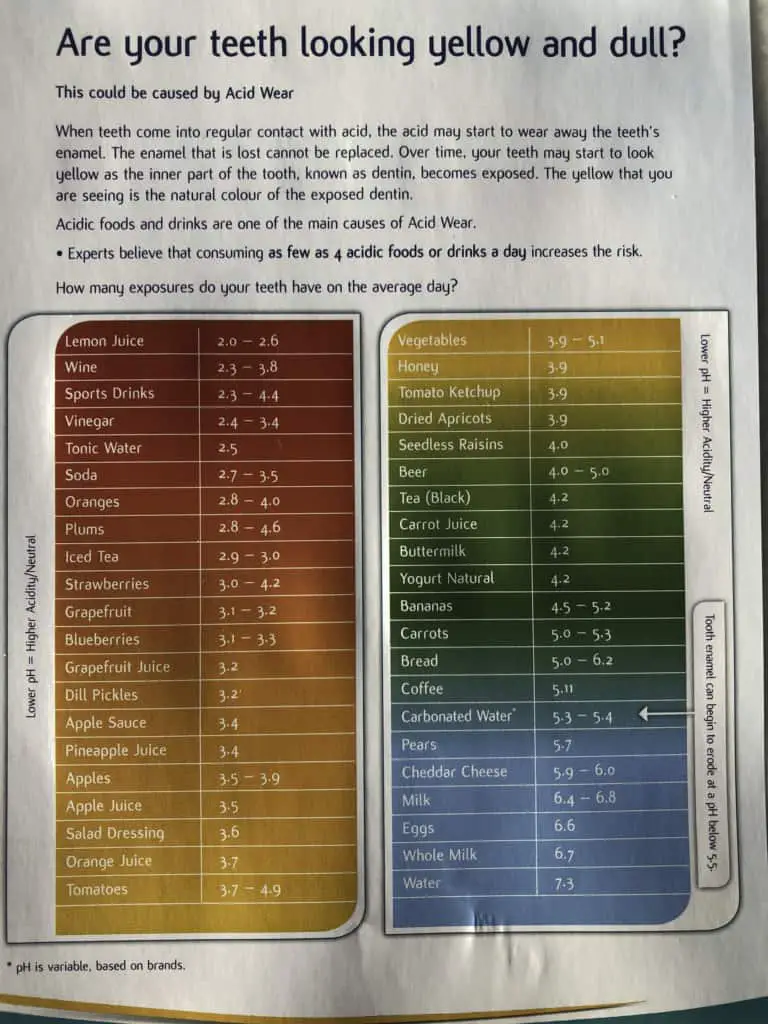
What you can do to reduce cavities
The obvious one that everyone knows but doesn’t want to admit… the famous f word; floss.
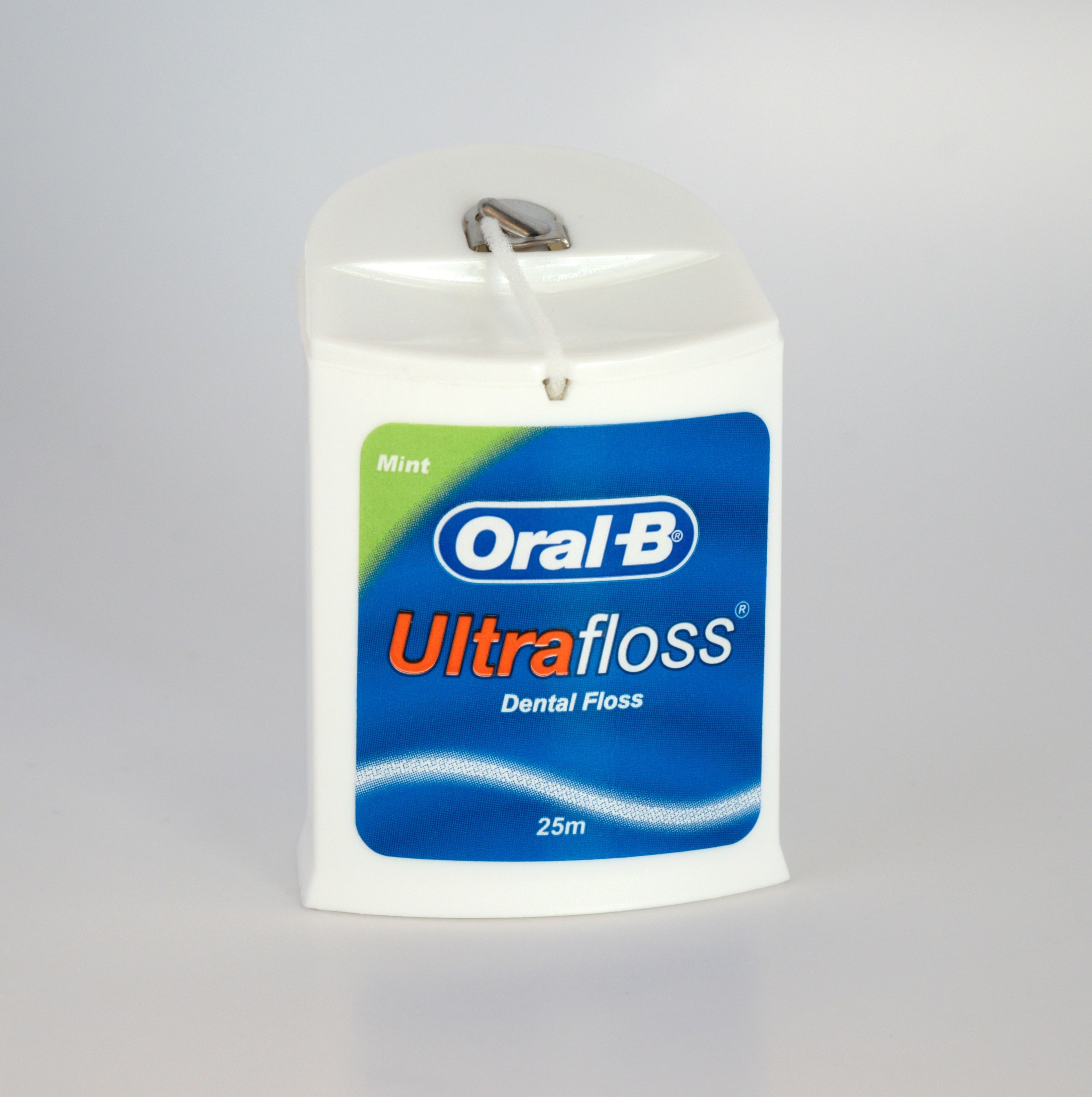
The most common areas for cavities to form is between the teeth where the teeth touch, on the biting surfaces of the back teeth in the deep grooves. And if you have root exposure the roots are another area that is prone to developing cavities, due to the porous and soft nature of the root texture.
Read Now: Why flossing has such a big payoff
Rinse your mouth with water after eating acidic and food and you can even floss.
Eat and drink in one sitting… the more often and longer you eat for keeps your mouth in the acidic state to form cavities.
Use a toothpaste that is formulated against sugar and acid. ProNamel wins the gold standard for this topic. I use this toothpaste myself. I especially love this toothpaste because there is no sodium lauryl sulphate (SLS) in it.
SLS is an agent they add to many household items to make it foam but has no positive impact on oral health. SLS has also been shown to cause ulceration and tissue irritation in the mouth.
What you can do to improve gum health and tissue healing
Eat a well-balanced diet, and see your doctor and get blood work done to check on your levels of vitamins and minerals.
That way you know what you are deficient in and you can start to incorporate foods into your diet and possibly supplements.
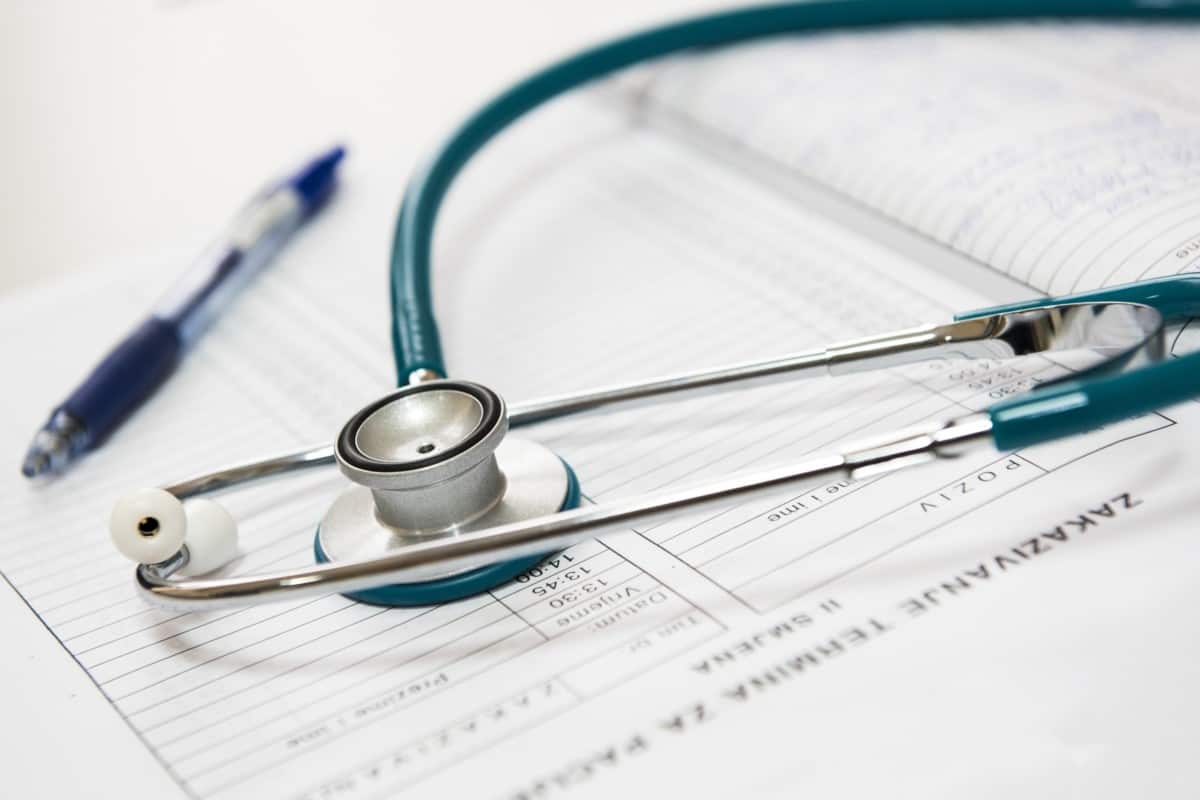
I am a huge advocate for integrative care and interprofessional collaboration. That’s why I see both my family doctor but I also see a naturopathic doctor.
Because I follow mostly a vegetarian diet I am missing certain things from my diet. I take a few supplements to support my diet to make sure I’m getting what I need.
Warm salt water rinses will help to kill bacteria in your mouth in a healthier way. You don’t really need to use expensive mouth rinses.
Having regular dental cleanings are so effective at maintaining oral health. You can read more about that in the post linked below.
Read Now: How Dental Hygienist’s Clean Your Teeth
And again, diligent oral hygiene. Flossing and brushing. Using an extra-soft or soft-bristle brush will be more gentle on the teeth and gums. Proper brushing technique is also an important one .. if not more important than the brush you are using.
I recommend electric toothbrushes to everyone as they have been proven to remove more plaque than manual brushes.
Read Now: 12 Benefits of Using an Electric Toothbrush
These items are on the top of my must-have list for helping prevent cavities and gum disease in relation to acidic diets.
- Oral-B Electric toothbrush: Electric toothbrushes are much more effective than manual brushes in removing plaque. The toothbrush in the link is the one I use myself. I prefer Oral-B electric toothbrushes over Sonicare, due to the size of the brush head and the multi
- ProNamel: I use this toothpaste religiously. I am a coffee drinker and do like to enjoy fruit and the odd sweet :). This toothpaste protects my teeth against acid erosion from my diet.
